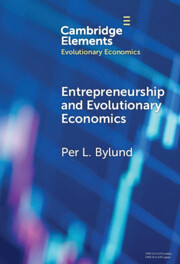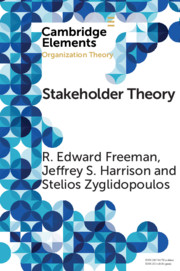Refine search
Actions for selected content:
21 results
Invisible Assets, Visible Gaps: Redefining the Principles of International Taxation
-
- Journal:
- International Journal of Legal Information / Volume 53 / Issue 2 / Summer 2025
- Published online by Cambridge University Press:
- 15 August 2025, pp. 134-147
- Print publication:
- Summer 2025
-
- Article
- Export citation
Conversation 7 - Artificial Intelligence and Legal Services
-
- Book:
- Legal Innovation
- Published online:
- 06 February 2025
- Print publication:
- 13 February 2025, pp 171-198
-
- Chapter
-
- You have access
- Open access
- HTML
- Export citation

Entrepreneurship and Evolutionary Economics
-
- Published online:
- 04 February 2025
- Print publication:
- 27 February 2025
-
- Element
- Export citation
6 - Value Creation and Capture in the Automotive Industry
-
- Book:
- Europe's Auto Industry
- Published online:
- 07 March 2025
- Print publication:
- 23 January 2025, pp 125-150
-
- Chapter
-
- You have access
- Open access
- HTML
- Export citation

Public Service Explained
- The Role of Citizens in Value Creation
-
- Published online:
- 09 December 2024
- Print publication:
- 19 December 2024
-
- Element
-
- You have access
- Open access
- HTML
- Export citation

Aberrant Capitalism
- The Decay and Revival of Customer Capitalism
-
- Published online:
- 21 February 2024
- Print publication:
- 14 March 2024
-
- Element
- Export citation
12 - The Inverted Firm
- from Part IV - Organizing Digital Innovations
-
- Book:
- Digital Innovation Strategy
- Published online:
- 21 December 2023
- Print publication:
- 21 December 2023, pp 159-167
-
- Chapter
- Export citation
Platform economies: Beyond the North-South divide
-
- Journal:
- Finance and Society / Volume 9 / Issue 1 / 2023
- Published online by Cambridge University Press:
- 09 November 2023, pp. 1-13
-
- Article
-
- You have access
- Open access
- Export citation

Investing in Innovation
- Confronting Predatory Value Extraction in the U.S. Corporation
-
- Published online:
- 07 August 2023
- Print publication:
- 30 November 2023
-
- Element
- Export citation
19 - Business Model Innovation for Sustainability
- from Part III - Corporate Sustainability: Processes
-
-
- Book:
- Corporate Sustainability
- Published online:
- 09 March 2023
- Print publication:
- 30 March 2023, pp 388-411
-
- Chapter
- Export citation
2 - How (Not) to Think about Value
-
- Book:
- Inventing Value
- Published online:
- 28 July 2022
- Print publication:
- 11 August 2022, pp 18-41
-
- Chapter
- Export citation
Measuring the value of data governance in agricultural investments: A case study
-
- Journal:
- Experimental Agriculture / Volume 58 / 2022
- Published online by Cambridge University Press:
- 21 February 2022, e8
-
- Article
-
- You have access
- Open access
- HTML
- Export citation
11 - Positioning and Growth Strategy
- from Part IV - Strategy Analysis
-
- Book:
- Managerial Economics
- Published online:
- 09 February 2022
- Print publication:
- 13 January 2022, pp 519-559
-
- Chapter
- Export citation
Understanding the motivations for open-source hardware entrepreneurship
- Part of
-
- Journal:
- Design Science / Volume 7 / 2021
- Published online by Cambridge University Press:
- 11 October 2021, e19
-
- Article
-
- You have access
- Open access
- HTML
- Export citation
1 - Conceptual Foundations of International Business Strategy
- from Part I - Core Concepts
-
- Book:
- International Business Strategy
- Published online:
- 02 September 2021
- Print publication:
- 23 September 2021, pp 13-78
-
- Chapter
- Export citation
1 - The Tactical Paradox
- from Part I - Ambivalence: The Triple Challenge of Negotiation
-
- Book:
- Learning to Negotiate
- Published online:
- 29 September 2020
- Print publication:
- 24 September 2020, pp 21-100
-
- Chapter
- Export citation

Stakeholder Theory
- Concepts and Strategies
-
- Published online:
- 18 August 2018
- Print publication:
- 30 August 2018
-
- Element
- Export citation

Value-Creating Boards
- Challenges for Future Practice and Research
-
- Published online:
- 31 May 2018
- Print publication:
- 31 May 2018
-
- Element
- Export citation
Exploring service innovation and value creation: The critical role of network relationships
-
- Journal:
- Journal of Management & Organization / Volume 25 / Issue 1 / January 2019
- Published online by Cambridge University Press:
- 07 August 2017, pp. 4-25
-
- Article
- Export citation
Value-creating organizational leadership
-
- Journal:
- Journal of Management & Organization / Volume 24 / Issue 1 / January 2018
- Published online by Cambridge University Press:
- 27 September 2016, pp. 19-39
-
- Article
-
- You have access
- HTML
- Export citation
